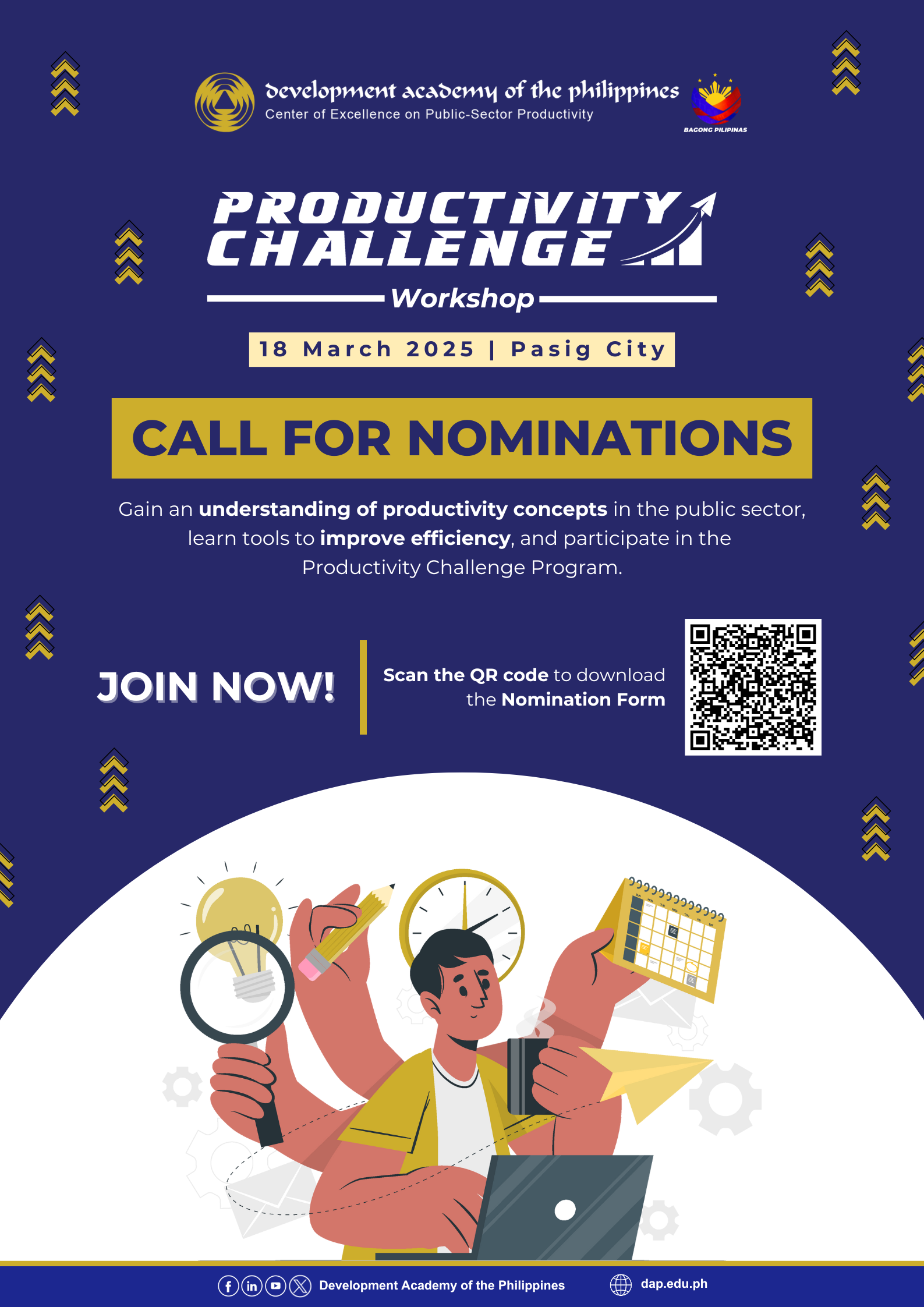
28 October 2021 – The Development Academy of the Philippines, through its Center for Governance – Policy Research Office (CfG-PRO), held the sixth installment of the Thursday Talks Webinar series entitled “Addressing the Gender-Based Violence Against Filipino Women and Children” under the Capability Building on Innovative Leadership for Legislative Staff (CBILLS) program.
This webinar aimed to re-examine the prevalence of gender-based violence (GBV), including online sexual exploitation of children (OSEC) in the Philippines, and how the COVID-19 pandemic affected such a phenomenon. Senior Project Director, Dr. Aurora Javate De Dios, and Executive Director, Dr. Melanie Reyes, of the Women and Gender Institute of Miriam College; and PCOL Joy Tomboc and PLTCOL Irene Cena of the Philippine National Police served as resource persons. Meanwhile, University of the Philippines Diliman Associate Professor Dr. Jean Encinas-Franco joined as the moderator.
During the first session, Dr. Aurora Javate De Dios emphasized that violence against women and children was preventable, and laws that protect women and children from physical and mental abuse must be revisited to protect the overall welfare of Filipino communities. Her lecture was followed by the perspectives of Philippine law enforcement on the response and efforts in fighting GBV.
PCOL Joy Tomboc, Chief of Anti-Violence against Women and Children Division under the PNP Women and Children Protection Center (WCPC), and PLTCOL Irene Cena, Officer-in-Charge of Women and Children Cybercrime Protection Unit of PNP Anti-Cybercrime Group, introduced their respective PNP offices to the participants, as well as their functions and initiatives in protecting women and children.
PCOL Joy Tomboc shared that gender-based violence, violence against women, juvenile crimes, and human trafficking of women were hidden crimes. She added that stronger collaboration and support from communities and the government are needed to combat these societal concerns.
On the other hand, PLTCOL Irene Cena argued that cybercrimes against women and children were becoming more relevant due to the fast and emerging global technology. Cooperation among countries and modernization of PNP are required to address innovative cybercrimes that could not be bounded by national territories.
Dr. Melanie Reyes reiterated that gender mainstreaming could serve as an instrument for better public policy-making to realize gender equality and women empowerment in the Philippines. In addition, she mentioned that mainstreaming gender equality perspectives in public policies and programs means that all stakeholders would be involved within the policy-making processes.
In the open forum moderated by Dr. Encinas-Franco, questions about the ongoing divorce bill, violence against the SOGIE community, availability and accuracy of statistical data of GBV incidence from law enforcement, percentage of resolution of GBV cases, amendment of women, children, and gender laws deepened and enriched the discussion on addressing gender-based violence against Filipino women and children.
Dr. Encinas-Franco ended the forum by saying that gender-based violence was a public health matter that needed to be collaboratively addressed by communities, policy-makers, and law enforcement. She mentioned that the involvement of men in the narrative was needed to combat gender-based violence. She applauded the victories of the PNP and reiterated their challenges in addressing violence against women and children before and during the pandemic. She also highlighted the importance of mainstreaming gender in the Philippine legislation to combat gender-based violence and inequality in the country.
The livestream of this event can still be accessed through the Policy Research Office Facebook Page at www.facebook.com/DAPCFGPRO. The seventh and last installment of the webinar will be held on 4 November 2021.




